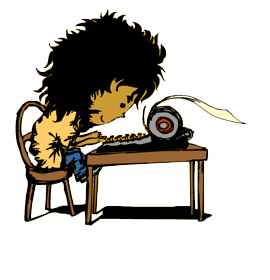Stories that Escaped the Fire
- Shehan
- Jul 22, 2022
- 4 min read
Updated: Jul 3, 2025
Der Spiegel (c) 2024
Commemorating Franz Kafka's 100th death anniversary from the other side of the globe.

Happy Death Day Franz! Would Kafka appreciate the bad joke of being commemorated a century after his death? Of having an asteroid, a museum and a prize named after him? Of being embraced in far flung places like my homeland, the island formerly known as Ceylon?
A shy writer, who never presumed to be a great one, Franz Kafka died in obscurity of TB-induced starvation, having published less than 500 pages in his lifetime. He asked his friend and literary executor Max Brod to burn all his remaining stories. He’d be perturbed to know that his strange tales of absurdity, angst, and alienation continue to find audiences this side of the Great Wall of China.
I haven’t read Kafka in years. Just like I haven’t listened to grunge or watched a Saw movie or written poetry, things I used to do with glee in my youth around the time I first encountered Kafka's writings.
I devoured his short stories, mostly because I wanted to write one myself and he was recommended as a good first teacher along with Chekhov, Hemingway, Maugham, and de Maupassant. The difference between a genius and a hack is the hack can tell you exactly how it’s done, while the genius can only show you. I didn’t come back from Franz Kafka’s Collected Stories any wiser on how to write a short story, though I did come back with some wisdom.
I could appreciate the plot-driven, character-driven, atmospheric stories of those other masters, but only Kafka seemed to understand what it was like to live in war-torn Sri Lanka in the 1980s. A mean feat for a man who died in the 1920s, and who could not foresee the holocaust that would murder all three of his little sisters.
The mess, the powerlessness, the lapses in logic, the widespread bureaucracy, the ubiquitous hypocrisy, and the comic mixed with the horrific. All seemed to aptly describe the country I lived in and connected with my half-forming Gen X slacker brain.
"I am a cage, in search of a bird."
Kafka proved a gateway drug to the Latin American magicians like Borges, Garcia Marquez, Bolano and Puig whose dystopias may have differed from mine but were still eerily familiar. Before long I was snorting lines of Attwood, Murakami and Rushdie and mainlining Saunders, Kundera and Nabakov. All self-confessed devotees of our man from Prague. My education in pathos and humour, in the bleak and the absurd had only just begun.
"I am free and that is why I am lost."
So this is how you write about a bizarre country and an indifferent universe? I may not have read Kafka recently, but his grammar, his rhythms and his wisdom have been with me always. His biography often resonates with struggling writers. The awkward insurance clerk, diagnosed with tuberculosis at 33, who ‘burned 90% of his work’ and left instructions for the rest to be destroyed. Who believed that ‘bread-winning and the act of writing’ should be mutually exclusive. Who died unheralded and underread.

But he also wrote prolifically from his fragile and fractured soul. He wrote because he was compelled to, and he did so expecting neither reward nor recognition. The world had to turn to hell in the 1940s before it caught up with his nightmares. But he wouldn’t live that long, so he just kept on writing.
"Writing is utter solitude, the descent into the cold abyss of oneself."
When I wrote of the afterlife as a Sri Lankan bureaucracy, in my novel The Seven Moons of Maali Almeida, more than one reviewer described it as ‘Kafkaesque'. Today I am writing a kids book about insects, where the universe is viewed by an ant, a mantis and of course, a cockroach.
"You do not need to leave your room. Remain sitting at your table and listen. Do not even listen, simply wait, be quiet, still and solitary. The world will freely offer itself to you to be unmasked, it has no choice, it will roll in ecstasy at your feet."
I live in a paradise that was at war for decades, a bankrupt nation propped up by foreign loans, where every candidate is related to a former President, where crimes remain unsolved, where conspiracy theories become folk tales, where bureaucracy and corruption can never be dismantled, especially in an election year.
"The meaning of life, is that it stops."
I may not have read Kafka recently but he continues to be a brooding companion to my present. Let’s commemorate his death by thanking Mr. Max Brod, author of over 80 books, whose finest contribution to literature was refusing to burn a good friend’s writings.
It does make you wonder about the other 90%. What wondrous ideas and stories might have perished in those flames, incinerated by their own creator. That Kafkaesque fate that may await us all.



